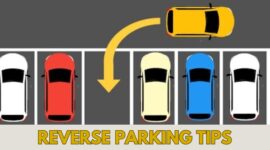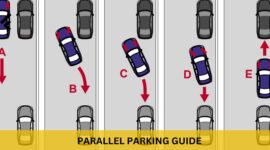Supporting Your Teen’s Driving Lessons: Tips for Parents
As your child learns to drive and develops confidence on the road, it’s important not only to encourage them to pay attention to safety, but also to help them understand how far they are progressing and what skills they have. As a parent of a teenager, you may be wondering how best to support and encourage your child as they begin to stand on their own two feet and become more independent.
Parental involvement is essential to support your teen during driving lessons and train them to be safe drivers. Driving schools also help new drivers complete state-required traffic training.
Like learning a new language, driving can be difficult at first for new drivers, especially shy or anxious teenagers. But a little practice goes a long way.
Tips For Supporting New Drivers
Start With Small Tips
It’s helpful to practice driving with your child in different situations, including driving at night. But don’t take your child on the highway for their first driving lesson; a highway experience could be traumatic for your teen instead of boosting their confidence. Start with the drive home from the supermarket, but don’t limit your exercise session to the parking lot.
Stay Calm
Teaching your teenager to drive is a long, arduous process that can be very frustrating for both parties. But no matter how frustrating the situation is, try to control your anger. If you want your teen to truly absorb what you’re teaching them, remember that there’s a big difference between criticism and constructive criticism.
Constructive criticism means explaining to your teen what he did wrong and giving him advice on how to improve. Remember, a scolding tone doesn’t necessarily boost a teen’s self-confidence.
Be A Good Role Model
Telling your teenager what to do and what not to do while driving is no use if you don’t back up your words with actions. New drivers learn primarily by observing the behaviour of adults behind the wheel.
Read Also – Driving Tips, Road Safety, and Driving License in the UK
Review the Rules
Before getting in the car, go through the basic safety guidelines with your child. Instead of lecturing, explain why these rules exist and ask questions to reinforce what they’ve already learned. This brief repetition will help your child feel more confident for upcoming driving lessons. Your teen needs to learn the rules of the road and how to drive a car safely.
Working on Difficulties
If you notice that your new driver has difficulty with certain manoeuvres, such as parallel parking or changing lanes on a highway, the best way to support him is to help him improve these skills. Talk to your teen about what is causing the problems and find out what is causing them. For many teens, driving and operating a large, unwieldy vehicle can be intimidating, and the cause may be fear of an accident, fear of injury, or simply ignorance.
Save the Advice For Later
Before getting behind the wheel, tell your child that you’ll wait until the car is parked to discuss your driving experience. This gives your child peace of mind that they can concentrate on driving without distractions. Of course, when it comes to safety, keep your cool.
Create Non-Negotiable Rules
One of the most important ways to support your new driver is to ensure he drives safely and responsibly at all times. This will help him develop healthy, safe driving habits and remain confident on the road throughout his life.
Lead By Example
One of the best ways to teach a new driver responsibility, safety and awareness is to lead by example. As a parent, your teen is likely looking to you to provide guidance, information and support in areas of life where he feels unsure. Try to mimic the behaviour you want him to exhibit while you are driving and when he is in the car with you. Additionally, pay attention to how you react to negative or dangerous situations while driving to help your child see that it’s not that hard to stay safe, calm and collected behind the wheel.
Keep Your Eyes On The Horizon
You don’t want your teen to think you’re not confident in their driving skills, so the less you say, the better. But even with the best of intentions, they might slam on the imaginary brakes, cling to the side of the car, or even scream.
Read Also- Success Guide for Becoming a Confident Driver
Final Words
Help your teen become a safer driver. However, be aware that this technique takes time and a great deal of patience to master perfectly.
If you have any questions about driving lessons, courses offered, schedules, or fees, please call us or visit Heartlands Driving Test Solutions. We are here to help.




